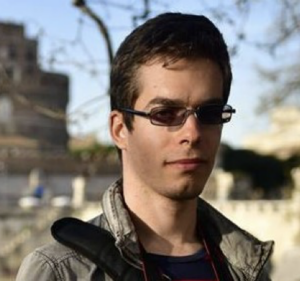Titolo della tesi
Il problema dei matrimoni clandestini in Italia tra secoli XV-XVI
Tutor: prof. Daniele Arru
Attività di ricerca
Lo scopo della mia tesi di dottorato è quello di offrire un quadro complessivo e globale sul problema dei matrimoni clandestini in Italia alla fine del Medioevo e all’inizio dell’età moderna, e più precisamente tra Quattrocento e Cinquecento, ovvero fino al Concilio di Trento, che proibì le nozze clandestine. Uno degli obiettivi rilevanti di questo lavoro è di fornire una definizione del matrimonio clandestino dal punto di vista canonico-giuridico. A questo punto, da una parte dobbiamo mettere in luce le riflessioni dei giuristi pretridentini, e d’altra parte anche la definizione post-tridentina dei matrimoni clandestini, che ha influenzato un grande numero di studiosi, fino al XX secolo. In secondo luogo, dobbiamo prendere in considerazione anche una definizione dei matrimoni clandestini dal punto di vista sociale. La parte più innovativa dell’indagine si manifesta nell’analisi di alcuni documenti inediti e inesplorati sulle nozze clandestine, presenti negli archivi di Roma. Lo scopo dello studio dei documenti è quello di indagare sul modo in cui si realizzavano praticamente i casi di matrimoni clandestini nella diocesi di Roma prima del Concilio di Trento.
The purpose of the PhD. thesis is to create a complex and a global picture of the clandestine marriages in Italy in the late Medieval Age and at the beginning of Early Modern Period, more specific in the fifteenth century and sixteenth century. The most important time reference that puts an end to this period could be the Council of Trent that forbade the clandestine marriages.One of the most important goals of this research is to explain and to define the clandestine marriage from a juridical and a canonical perspective. On the one hand, we should take into consideration the definitions given by the canonists in the Pre-Tridentine Era, on the other hand we should put a light on the definition of the clandestine marriage after the Council of Trent, which has influenced a great number of the researchers until the twentieth century.Second of all, we should take into account a definition of the clandestine marriage from a social point of view.However, the original and innovative part of this work is the examination and the analysis of some unique documents regarding the clandestine marriages, preserved particularly in the archives of Rome. We are going to study these documents in order to investigate how people were united in clandestine matrimony and how they celebrated it in the diocese of Rome before the Council of Trent.

pubblicazioni e convegni
